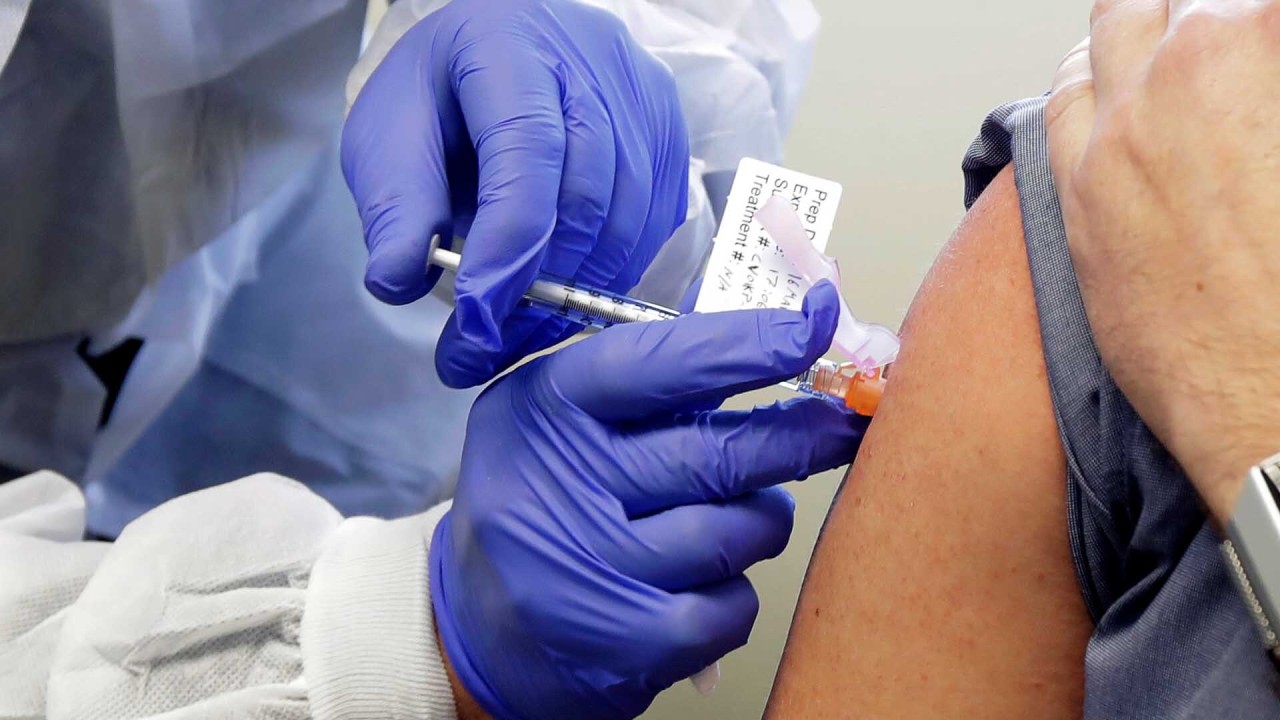
02:23
Moderna Covid-19 vaccine nearly 95 per cent effective in second promising trial for US drug makers

Hope springs eternal, and it has never been more important than today. The scale of the damage wrought by the Covid-19 pandemic – 56 million cases worldwide, 1.3 million deaths and a global economy that is forecast to shrink 4.4 per cent this year, with 90 million people expected to fall into extreme deprivation, according to the International Monetary Fund – makes the breakthrough in the hunt for an effective vaccine hugely significant.
A series of announcements over the past 10 days, first by Pfizer and its German partner BioNTech, then by Moderna, that their respective vaccine candidates were found to be 95 per cent effective in preventing infections, have lifted spirits around the world.
Not only has a vaccine against a previously unknown pathogen been developed in less than a year, its efficacy has significantly exceeded expectations. Even a flu jab is only 40 to 60 per cent effective. Make no mistake, the breakthrough is a remarkable scientific feat, accentuated by the promising new technology on which both shots rely.
Yet, while a corner has been turned, there are reasons for caution, both from a medical and logistical standpoint as well as an economic and political one.
The vaccine euphoria that has gripped financial markets is bound to fade, offering a warning to equity investors who are betting on a shift away from stocks that have prospered in the pandemic, led by technology shares, to those that have suffered due to lockdowns and social distancing.

02:23
Moderna Covid-19 vaccine nearly 95 per cent effective in second promising trial for US drug makers
First, it’s still early days as far as the efficacy of a vaccine is concerned. The trial results are based on symptomatic cases – part of what makes Covid-19 so deadly is that many infections are asymptomatic – and it is unclear how successful the two shots are in preventing severe disease.
Other questions that can only be answered after further results become available are how long protection can be conferred, and whether some strains of the virus are more resistant to vaccines.
Another concern is distribution and availability. The time lag between final-stage trials and mass vaccination is significant, and could be exacerbated by supply chain bottlenecks.
The logistics are more challenging in the case of Pfizer’s vaccine, which must be stored at ultracold temperatures and requires two doses that have to be administered three weeks apart, making it more difficult to deploy the shot effectively.
Second, the promise of a vaccine does not undo the colossal human and economic damage that has already been caused, and it will not prevent the further harm that is likely to be inflicted before a vaccine is deployed on a large enough scale.
In the first 10 days of November alone, America added 1 million infections, while hospital admission rates in both the United States and Europe are almost as high as they were during the first wave of Covid-19.
Even with more support from policymakers, the time required to achieve “herd immunity” is too long to avert a double-dip recession in the euro zone and a sharper slowdown in America.
What is more, lockdown fatigue – even US president-elect Joe Biden’s advisers, who are in favour of tougher restrictions, oppose a nationwide shutdown – is growing stronger by the day, undermining efforts to contain the spread of the disease.
Indeed, the positive impact of the vaccine breakthrough is not just offset by increasing virus-induced economic damage, it is also counteracted by structural headwinds arising from the pandemic.
As JPMorgan noted in a report published on November 13, disruptions caused by long-term unemployment, the surge in indebtedness and the permanent shift to homeworking will “outlive the virus”.
Third, vaccine hesitancy needs to be overcome to turn the tide against the pandemic. As I argued previously, the proportion of adults willing to get a vaccine if one is available is declining, particularly in America.
The paradox is that this is partly due to efforts to speed up approval for a shot which, having become politicised in the run-up to the presidential election, have caused a hardening of anti-vaccination sentiment.
In Europe and the US, there has been a loss of confidence in how politicians and scientists have handled the pandemic. This now threatens the uptake of vaccination.
The greater the perception that the approval process is being rushed, compromising the safety of a shot, the bigger the risk that immunisation programmes will struggle to achieve the levels of public participation required to be successful.
To be clear, my scepticism about the promise of a vaccine should in no way be interpreted as an attempt to downplay the significance of the breakthrough.
It is not just fantastic news, it marks a turning point in the crisis. Yet, with the pandemic raging in the West, the actions taken by policymakers and scientists in the coming weeks and months will be just as important.
Nicholas Spiro is a partner at Lauressa Advisory